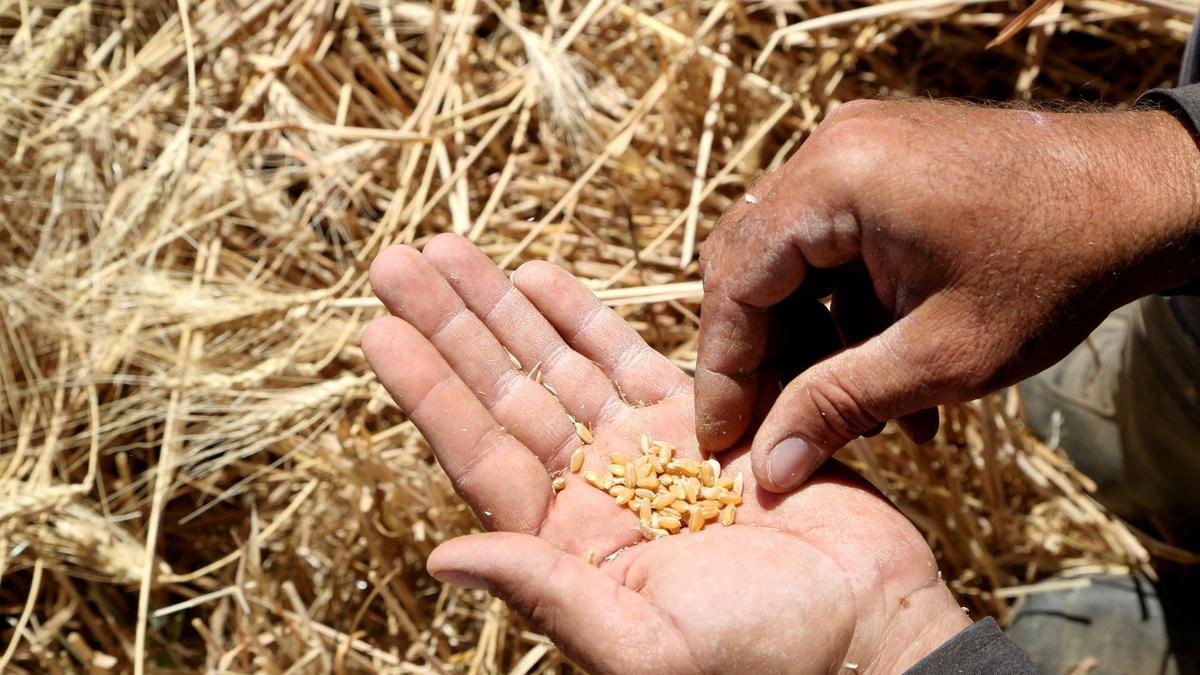Government intervention to manage food security amidst wheat shortage
Business EconomyPosted by AI on 2025-08-26 17:39:05 | Last Updated by AI on 2025-08-26 20:41:18
Share: Facebook | Twitter | Whatsapp | Linkedin Visits: 0

headlined the government's recent decision to reduce wheat stock limits. This move aims to tightly control the distribution of this vital commodity, potentially affecting millions of citizens who rely on government-subsidized wheat purchases. The government claims this necessary to effectively manage food security.
This headline raises several questions: what is the cause of the wheat shortage, and how will this decision impact the wider food security and public health of the country's citizens? This article explores these concerns.
The underlying cause of this wheat shortage is still unclear, but experts cite numerous factors that could contribute to this crisis. Some argue that climate change, with its increasingly extreme and unpredictable weather patterns, plays a key role in diminished wheat yields, making it harder for producers to meet consumer demands.
This is exacerbated by a growing population who, despite government efforts, still struggle with food insecurity. Wheat is a vital component of many diets in this region, making this decision impactful on public health.
The government's decision will affect many of its citizens. It remains to be seen how this decision will affect their broader food security and public health goals.
This story is still developing, but these new policies will undoubtedly leave an impact on the citizens who rely on this critical resource. stay tuned as we continue to provide updates on this developing story.
Search
Categories
- Sports
- Business
- History
- Politics
- International
- Science & Technology
- Social Issues
- Disaster Management
- Current Affairs
- Education
- Startup Business
- Startup News
- Awards
- Community Services
- Fundraising Events
- Volunteer Services
- Health Initiatives
- Innovations and Initiatives
- In News
- Banners
- Awards
- Partners
- Products
- Press Releases
- News
- Fast Check
- South
- సినిమా
- Gallery
- Sunday Chronicle
- Hyderabad Chronicle
- లైఫ్ స్టైల్
- National
- క్రైం
- ట్రెండింగ్
- జాబ్స్
- అంతర్జాతీయo
- బిజినెస్
- రాజకీయం
- బిజినెస్
- సంపాదకీయం
- నవ్య
- చిత్ర జ్యోతి
- క్రీడలు
- జాతీయం
- తెలంగాణ
- తాజా వార్తలు
- మన పార్టీ
- మన నాయకత్వం
- మన విజయాలు
- డౌన్లోడ్స్
- మీడియా వనరులు
- కార్యకర్తలు
- North East Skill Center News
- Government Schemes
- Entrepreneurship Support
- Employment Opportunities
- Skill Training Programs
- Departments
- Investments
- Initiatives
- Resources
- Telangana IT Parks
- Events & Jobs
- Press Releases
- News
- Airport News
- Newtons Laws of Motion
- Karbonn in Business
- Investments in Karbonn
- Company quarterly sales
- Markets
- Auto News
- Industry
- Money
- Advertisements
- Stock target
- Company Updates
- Stock Market
- Company Sales
- Staffing and HR
- Constituency Assembly
- General News
- Srikalahasti Temple
- Bojjala Sudhir Reddy
- Technology & Innovation
- Sports
- Business
- Products
- Industries
- Services & Trainings
- Tools & Resources
- Technology Integration
- Drug Seizures & Arrests
- Telangana Narcotics
- Law & Enforcement
- Rehabilitation
- Nationwide Drug Policing
- Nigeria Seizures
- Global Operations
- Drug Awareness
- Drug Enforcement Tech
- NCB Drug Seizures
- Judicial Crackdown
- India's Surveillance Tools
- Cross-Border Links
- Women Safety
- Cyber Crimes
- Drug Abuse
- Traffic & Road Safety
- Community Connect
- Public Safety Alerts
- Citizen Assistance
- Nellore City News
- Politics & Administration
- Events & Festivals
- Agriculture & Rural
- Business & Economy
- Health & Wellness
Recent News
- Smart Cities, Smarter People?
- Smart Cities, Safer Markets: Civic Chief's Swift Action
- Rare Daily Homam Makes Ayyappa Temple in Nellore Special to Lord Ganesha
- Sure! Here is a revised version of the article in a captivating, magazine-style format:
- TD Party Chaos in Nellore District
- Rising Drug Abuse: Four Held with 6 kg Ganja in Nellore District
- Here is a draft of a news article based on the information provided in the brief, with the title "Local Market Trend For Toyota Innova Crysta Diesel Cars":
- Nigerian Nationals Arrested for Drug Racket